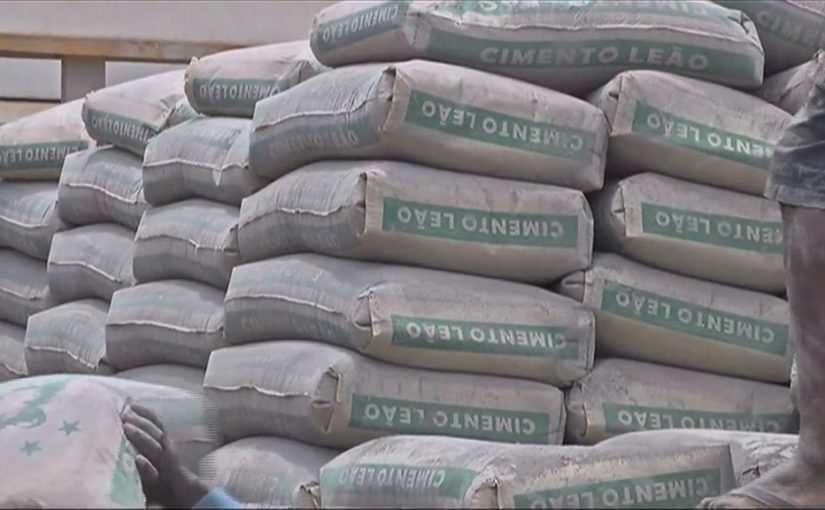Mozambique: Electronic money institution profits leap over 40% to €31.9M
Govt to remove 20% of protection for cement industry, to reduce prices – report

FILE - For illustration purposes only. [File photo: AIM]
The Ministry of Economy will lower by 20% the protection granted to the cement production industry in Mozambique, in order to enable greater competitiveness and consequently reduce prices, AIM Moçambique reports.
The protection in force was aimed at some large recent investments in the country, including Dugongo, a producer of raw materials, at a time when the country only had four [cement] manufacturing units with a total capacity of 400,000 tons.
Now, the [cement] sector has around ten manufacturing units and a capacity of 16 million tons.
The executive believes that the investments are in their final phase of consolidation, especially in the south, and is studying the need to open the market so that competitiveness generates quality and a reduction in cement prices.
The government’s plan was confirmed by the national Director of Industry, Sidónio dos Santos, in an interview with AIM Moçambique.
“The investments needed to take place in a protected environment and, at the moment, Dugongo is the only producer of raw materials. And we knew that, when we protected it, there would be cartels or monopolies. We believe that the day we remove the protection, we will understand the dynamics of costs better because other types of players will enter the market,” said the National Director of Industry.
Dos Santos acknowledges that the protection given to Dugongo killed competition, and the only way to understand the state of the market is to reopen the industry, at a time when investments of over 100 million dollars are being made at a regional level to increase production.
“When we didn’t have this protection, there was cement which came from China, Pakistan and other corners of the world, but now there is no longer any imported cement on the market”, he highlighted.
He confirmed that in the northern region, specifically in the province of Nampula, there is an investment that is in its experimental phase that could meet demand in that area, and the same scenario is occurring in the central region of Mozambique.
“We protected the cement industry so that there would be investments and these investments are happening. Now we are going to take other measures and the reduction in the price of cement will have to happen”, he assured.
The government is also discussing the issue of companies that produce cement and raw materials at the same time, to ensure that there is no conflict, since other manufacturing units need to acquire the raw materials locally for production and distribution.
“There is a question of competition and we have to adjust the regulations to safeguard these aspects and allow for a healthy business environment in the sector,” he said.
According to the source, the government is investigating an alleged sale of Dugongo in neighbouring South Africa at a relatively low price, compared to the prices charged in the country, recalling that when the company entered Mozambique it used the same strategy of lowering prices, creating problems that culminated in the closure of other competitors.
“Let us work to clarify the situation. We are investigating. Dugongo started operating in that market, offered competitive prices. There was a petition and some companies closed because of the impact of Dugongo,” he stressed.
It should be noted that the cement market in Mozambique is going through a turbulent period after former presidential candidate Venâncio Mondlane, as part of his “parallel government”, decreed that the price of cement should be set below 350 meticais (around US$5.5) a bag.
The decision, considered a “populist” measure, created confusion among both producers and retailers, who were forced to sell at a price below the purchase price.
In view of this, the government has already promised to analyse the cement price structure to find favourable solutions for the industry.












Leave a Reply
Be the First to Comment!
You must be logged in to post a comment.
You must be logged in to post a comment.